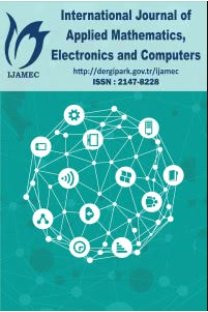Measurement and Evaluation of Electric Field Strength in Samsun City Center
There has been a substantial growth in the use of mobile communication services over the last few years. As a result of this increase in the number of base stations, and electromagnetic (EM) exposure levels have become inevitable. Considering the public debate about possible health hazards caused by electric field strength (E), in this study, evaluating the effect of establishment of 4G systems on existing E levels is aimed. For this purpose; the total 536 E measurements were conducted in Samsun before and after 1 April 2016. It is seen from the measurements that maximum E (Emax) is 6.32 V/m while the maximum average E (Eavg) is 3.26 V/m which are both below the limits that are determined by the International Commission on Non-Ionizing Radiation Protection (ICNIRP) and Information and Communication Technologies Authority of Turkey (ICTA). The results demonstrate that the deployment of 4G yielded up to 52.3% increase in Emax while 12.5% in Eavg values. Furthermore in order to determine the main E sources band selective E measurements are conducted and analysed. Analyses demonstrate that 65.6% of total E is caused by UMTS2100, 22.3% is produced by GSM900, 4.8% by GSM1800, 1.3 % by LTE800, and 6% is generated by devices that use the remaining frequency bands.
Keywords:
Electric field strength, electromagnetic (EM) radiation EM measurement, statistical analysis,
___
- [1] Kurnaz Ç., “An Emprical Modelling of Electromagnetic Pollution on an University Campus”, The Applied Computational Electromagnetic Society Express Journal, vol.1, no.2, pp.76-79, 2016.
- [2] Gül B. K, Kurnaz Ç., and Engiz B. K, “Measurement and Evaluation of Electromagnetic Pollution in Ondokuz Mayıs University Kurupelit Campus in Samsun, Turkey”, Third International Conference on Advances in Information Processing and Communication Technology, pp.80-84, Rome, Italy, 2015.
- [3] Mousa A., “Electromagnetic radiation measurements and safety issues same cellular base stations in Nablus”, Journal of Engineering Science and Technology Review, vol. 4, no. 1, pp. 35-42, 2011.
- [4] Genç O., Bayrak M., and Yaldız E., “Analysis of the effects of GSM bands to the electromagnetic pollution in the RF spectrum”, Progress in Electromagnetics Research, vol.101, pp.17-32, 2010.
- [5] Miclaus S., and Bechet P., “Estimated and Measured values of the Radiofrequency Radiation Power Density around Cellular Base Stations”, Environment Physics, vol. 52, no. 3–4, pp. 429–440, 2007.
- [6] Seyfi L., “Measurement of electromagnetic radiation with respect to the hours and days of a week at 100kHz–3GHz frequency band in a Turkish dwelling”, Measurement, vol.46, no.9, pp.3002-3009, 2013.
- [7] Baltrenas P., and Buckus R., “Measurements and analysis of the electromagnetic fields of mobile communication antennas”, Measurement, vol.46, no.10, pp.3942-3949, 2013.
- [8] Koprivica M., Slavkovic V., Neskovic N., Neskovic A., “Statistical Analysis of Electromagnetic Radiation Measurements in the Vicinity of GSM/UMTS Base Station Installed on Buildings in Serbia”, Radiation Protection Dosimetry, pp.1-14, 2015, doi: 10.1093/rpd/ncv372.
- [9] Karadag T, Yüceer M., and Abbasov T., “A Large-Scale Measurement, Analysis And Modelling of Electromagnetic Radiation Levels in the Vicinity of GSM/UMTS Base Stations in an Urban Area”, Radiation Protection Dosimetry (2015), pp. 1–14, doi:10.1093/rpd/ncv008.
- [10] ICNIRP Guidelines, “Guidelines for Limiting Exposure to Time-Varying Electric, Magnetic, and Electromagnetic Fields (up to 300GHz)”, International Commission on Non-Ionizing Radiation Protection, Health Physics vol.74, no.4, pp.494-522, 1998.
- [11] Information and Communication Technologies Authority of Turkey, “Ordinance change on By-Law on Determination, Control and Inspection of the Limit Values of Electromagnetic Field Force from The Electronic Communication Devices According to International Standards”, Law no.29497, 9 October 2015.
- [12] www.pmm.it/docs/8053en1001.pdf
- [13] www.narda-sts.us/pdf_files/DataSheets/SRM3006_DataSheet.pdf
- ISSN: 2147-8228
- Yayın Aralığı: Yılda 4 Sayı
- Başlangıç: 2013
- Yayıncı: Selçuk Üniversitesi
Sayıdaki Diğer Makaleler
Veysel Alcan, Murat Zinnuroğlu, Gülçin Kaymak Karataş, Mehmet Rahmi Canal
Enes Ayan, Erdem Kamil Yıldırım
İkbal ESKİ, Ahmet KİRNAP, Mehmet KİRNAP
Mustafa CANSIZ, Teymuraz ABBASOV, M.Bahattin KURT, A.Recai CELIK
Büşra AKARSU, Mehmet KARAKÖSE, Koray PARLAK, Erhan AKIN, Alişan SARIMADEN
